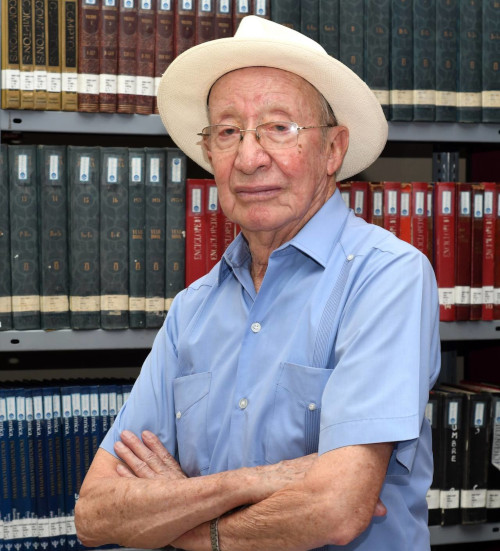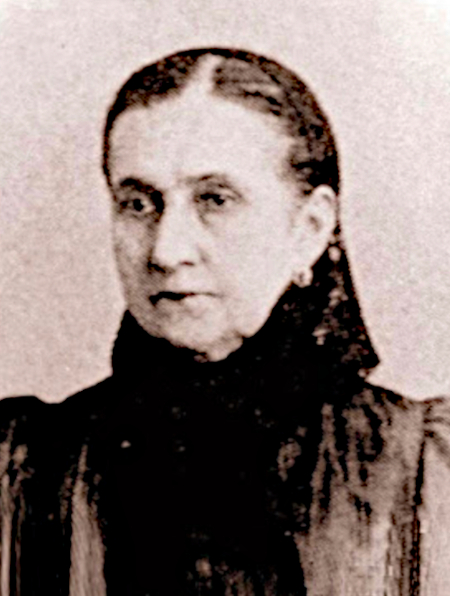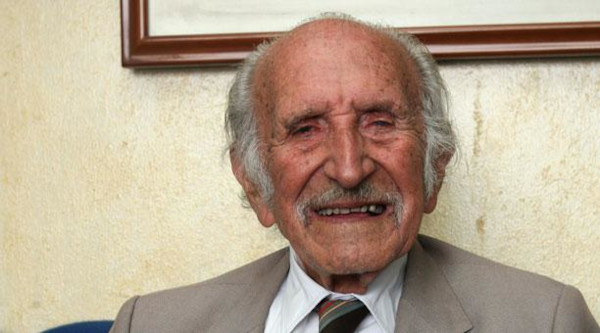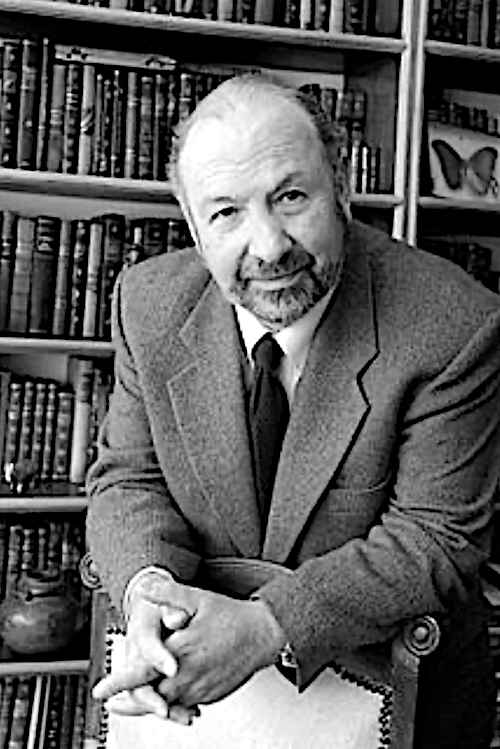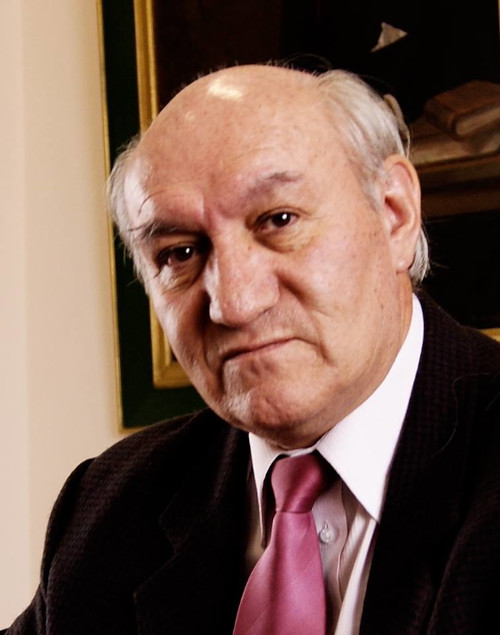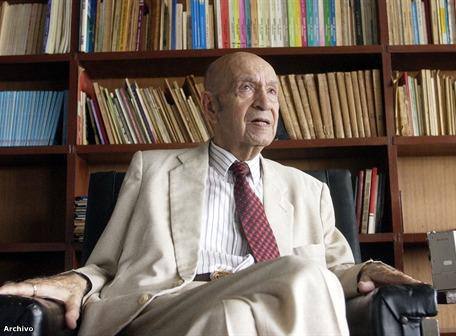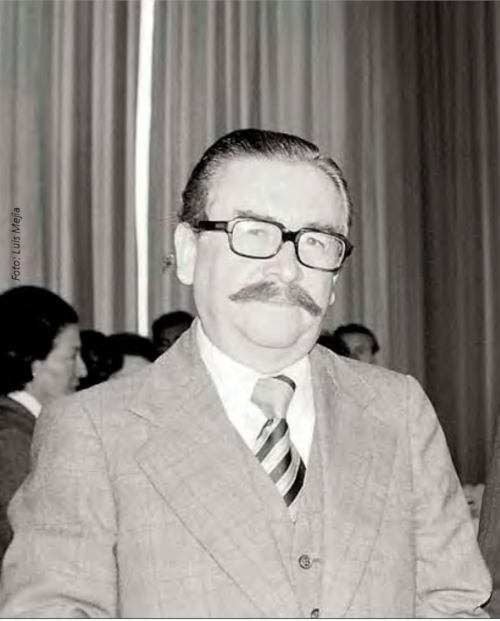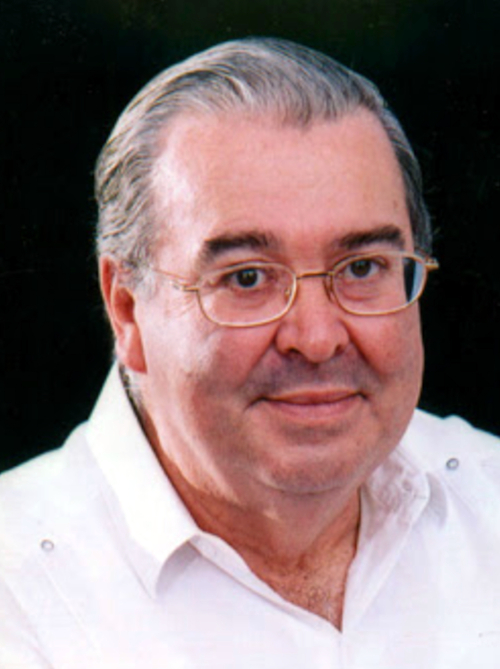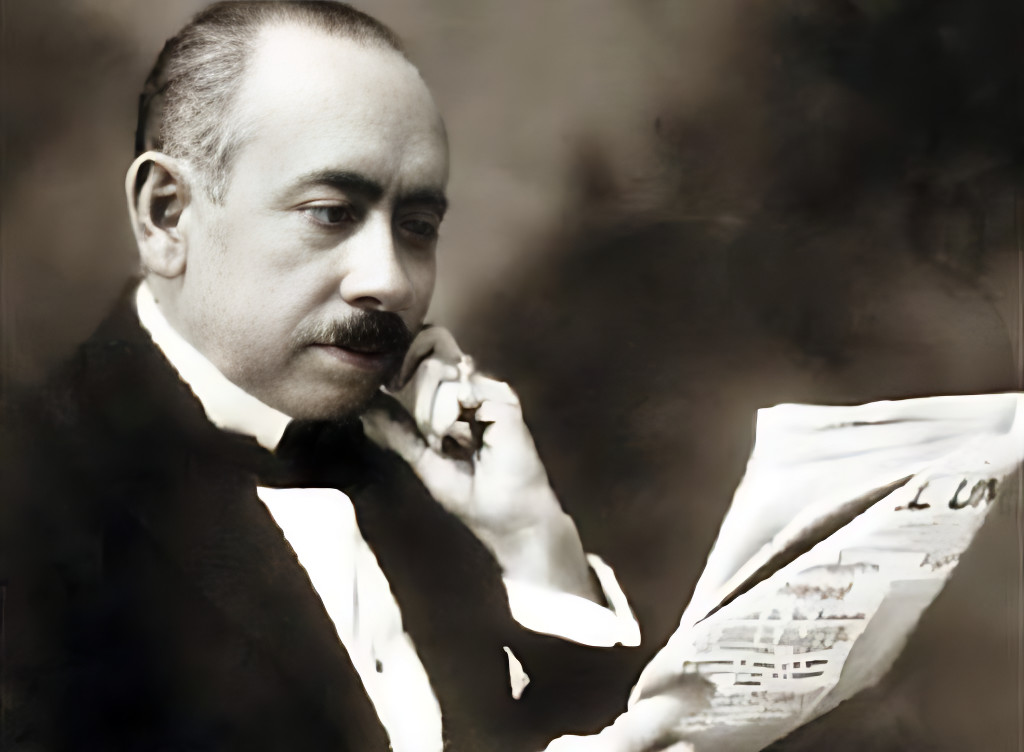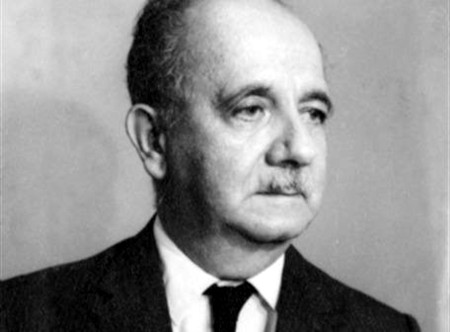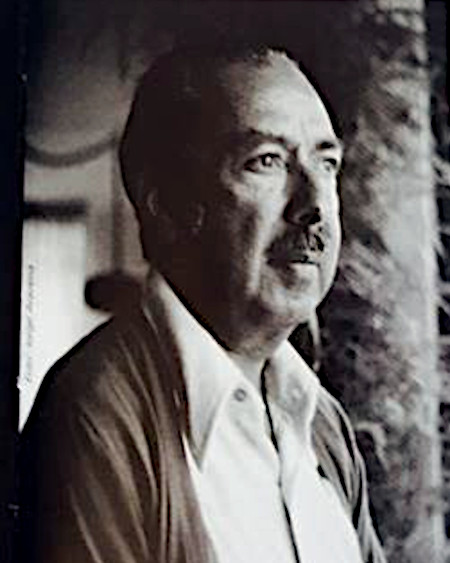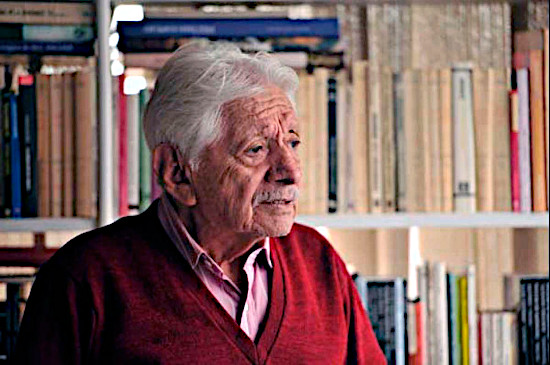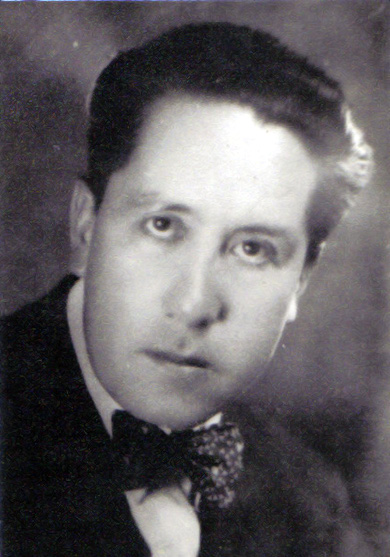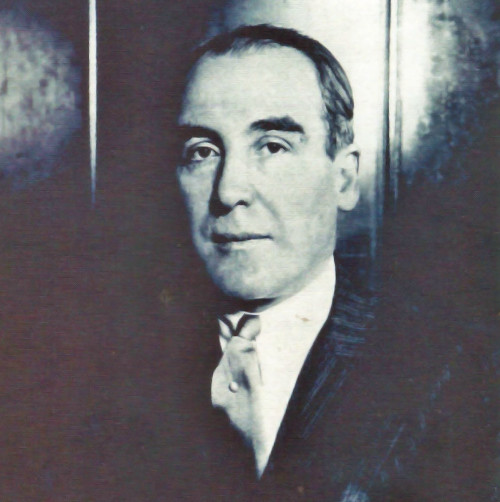Rodrigo Abelardo Pesántez Rodas (Azogues, July 25, 1937 – Guayaquil, April 2, 2020) was an Ecuadorian writer, poet, literary critic, anthologist, researcher, university professor, and cultural promoter. He’s best known for his essays and for publishing poetry anthologies containing poems by Ecuadorians. He is especially remembered as an exponent and champion of Ecuadorian women writers. His book, “Presencia de la mujer ecuatoriana en la poesía” (1960), is a poetry anthology that contains poems by 67 Ecuadorian women writers. Other books by him include: “Panorama del ensayo ecuatoriano,” “Ocho poetas tanáticas,” “Jorge Carrera Andrade, amistad y anhelos compartidos,” and “Siete poetas del Ecuador.” As a poet, his poetry books include “Viñas de Orfeo,” “De cuerpo entero,”and “Vigilia de mi sombra.” Among the many awards he received are: the José Vasconcelos Award (an international award from Mexico) and the National Cultural Merit Medal from the House of Ecuadorian Culture. For forty years, he taught Ecuadorian Literature at the University of Guayaquil. He was a member of the House of Ecuadorian Culture.
Continue reading “Rodrigo Pesántez Rodas”Month: January 2021
Rita Lecumberri
Rita Lecumberri Robles (Guayaquil, November, 14, 1831 – Guayaquil, December 23, 1910) was an Ecuadorian writer and educator. She was a published and awarded poet and essayist. She is also noted for her contribution to the education of women in Ecuador. She was director of the Escuela San Alejo in 1880-82 and 1882-95. A school, (El colegio Rita Lecumberri) is named after her as well as an award.
Continue reading “Rita Lecumberri”Nicolás Kingman Riofrío
Nicolás Kingman Riofrío (Loja, November 18, 1918 – Quito, March 19, 2018) was an Ecuadorian writer, journalist and politician
Continue reading “Nicolás Kingman Riofrío”Francisco Tobar García
Francisco Tobar García (Quito, November 3, 1928 – Quito, February 1, 1997) was an Ecuadorian poet, playwright, novelist, essayist, journalist, literary critic, diplomat, and university professor. He earned a Ph.D. in Literature from the Pontifical Catholic University of Ecuador and held teaching positions at universities such as La Plata in Argentina, the Sorbonne in Paris, and Complutense in Madrid. He revitalized Ecuadorian theater with his plays and published several notable works of poetry and fiction, including Pares o nones and Autobiografía admirable de mi tía Eduviges, which critics consider his masterpiece. He also served as a diplomat in Spain, Haiti, and Venezuela.
Continue reading “Francisco Tobar García”J.D. Santibáñez
J.D. Santibáñez, born José Daniel Santibáñez (Guayaquil, 1959) is an Ecuadorian science fiction novelist and comic book writer. He studied Illustration at Parsons School of Design in New York. Santibáñez’s literary contributions include two notable novels: “Ejecútese el mañana” (2001; Execute Tomorrow), a thrilling blend of science fiction and noir set in the near future, and “El mago” (2003; The Magician), a captivating fusion of fantasy, supernatural elements, and action. Displaying his creative versatility, Santibáñez also delved into the realm of comic books, crafting the critically acclaimed “Cómic Book” (2008), a compilation of 27 enthralling graphic stories encompassing science fiction and crime. Alongside his remarkable artistic achievements, Santibáñez shares his knowledge and expertise as a professor at institutions such as the Escuela Superior Politécnica del Litoral (ESPOL), Universidad Santa María (USM), and Universidad de Especialidades Espíritu Santo (UEES). His written works, whether in prose or sequential art, enthrall readers with their fast-paced, darkly ironic, and immensely entertaining narratives populated by a diverse cast of characters, ranging from cowboys and time travelers to hitmen and apocalyptic monsters.
Continue reading “J.D. Santibáñez”Jorge Núñez Sánchez
Jorge Núñez Sánchez (Bolivar, February 6, 1947 – Quito, November 1, 2020) was an Ecuadorian writer, historian, and professor. He was the author of 56 books and co-author of 66 other books. He was a professor at the Central University of Ecuador and Treasurer of the National Academy of History. In 1992 he was appointed the director of the Department of History and Geography of the House of Ecuadorian Culture. In 2010 he was awarded the Eugenio Espejo Prize in Culture by the President of Ecuador.
Continue reading “Jorge Núñez Sánchez”Ángel Felicísimo Rojas
Ángel Felicísimo Rojas (Loja, December 20, 1909 – Guayaquil, July 20, 2003) was an Ecuadorian novelist and short story writer. His best known novel is El éxodo de Yangana (1949), which is one of Ecuador’s most important books. In 1948 Rojas published an influential book entitled The Ecuadorian Novel, which set the tone for literary criticism in the country for future decades. Rojas founded the Socialist Party of Loja in 1927. He was a passionate supporter of socialism, which led to his arrest and imprisonment by the Ecuadorian government in 1941. In 1997 Rojas was awarded the Eugenio Espejo Award in Literature.
Continue reading “Ángel Felicísimo Rojas”Galo René Pérez
Galo René Pérez (Quito, April 3, 1923 – June 18, 2008) was an Ecuadorian writer, poet, literary critic, biographer, and college professor. He held various posts in literary and cultural institutions of Ecuador. He was Secretary of Public Education during the government of the former President Galo Plaza, and served as Secretary General of the Council of Government. He was also President of the House of Ecuadorian Culture and Director of the Ecuadorian Academy of Language. He published 14 books in his career. His lectures, essays, articles, literary criticism have been collected and published for study abroad. His style, which is simple and elegant, has won him admirers the world over. He was the 2004 recipient of the “Premio Eugenio Espejo” Ecuador’s highest literary award.
Continue reading “Galo René Pérez”Rodolfo Pérez Pimentel
Rodolfo Pérez Pimentel (Guayaquil, November 2, 1939) is an Ecuadorian lawyer, historian, and biographer. He was declared the lifetime chronicler of the city of Guayaquil, and is a member of the National Academy of Ecuadorian History. Pérez Pimentel is the author of the Biographical Dictionary of Ecuador (Diccionario biográfico del Ecuador), which consists of about 1,600 biographies of nationals and foreigners who have been an integral part of Ecuador. In 2005, Pérez Pimentel won the Eugenio Espejo Prize in the literature category for his lifetime work as a biographer. Rodolfo Pérez Pimentel is a highly respected figure in Ecuadorian literary and historical circles, known for his dedication to research, his extensive publications, and his commitment to preserving the cultural heritage of Guayaquil and Ecuador as a whole.
Continue reading “Rodolfo Pérez Pimentel”Ismael Pérez Pazmiño
Ismael Pérez Pazmiño (Machala, June 30, 1876 – Los Angeles, November 1, 1944) was founder of El Universo newspaper of Guayaquil, Ecuador, and former senator of El Oro province. He published the first edition of El Universo on September 16, 1921. El Universo is still run by Pérez Pazmiño’s descendants. Many educational institutions and streets bear his name in Ecuador. An important national poetry contest by El Universo also bears his name.
Continue reading “Ismael Pérez Pazmiño”Jorge Pérez Concha
Jorge Pérez Concha (Guayaquil, June 5, 1908 – Guayaquil, April 1, 1995) was an Ecuadorian historian, biographer, writer, and diplomat. He wrote biographies of Eloy Alfaro, Luis Vargas Torres, and his uncle Carlos Concha Torres, among others. In 1989 Pérez was awarded the Eugenio Espejo Award in Culture by the president of Ecuador.
Continue reading “Jorge Pérez Concha”Edmundo Ribadeneira Meneses
Edmundo Ribadeneira Meneses (Ibarra, November 2, 1920 – February 14, 2004) was an Ecuadorian writer and university professor. He was the president of the House of Ecuadorian Culture from 1979-1988. In 1988 the president of Ecuador conferred on Ribadeneira the Eugenio Espejo Award for his lifetime of contribution to the national culture.
Continue reading “Edmundo Ribadeneira Meneses”Efraín Jara Idrovo
Efraín Jara Idrovo (Cuenca, 26 February 1926 – Cuenca, 8 April 2018) was an Ecuadorian writer and poet. Tragedy struck Idrovo in 1974, when his teenage son committed suicide. Idrovo expressed his sorrow in the form of a poem, “Weeping for Pedro Jara (structures for An Elegy),” which was published in 1978 and is considered one of Jara’s most important works. The Biographical Dictionary of Ecuador has called it “one of the greatest and most beautiful national poems ever written.” The poem is highly experimental, in that it was printed on a single 60cm by 70cm sheet of paper, divided into 15 sections, and can be read horizontally, vertically, or diagonally. He was president of the Azuay branch of the House of Ecuadorian Culture. In 1999, Jara was awarded the Eugenio Espejo Award, the nation’s highest literary honor.
Continue reading “Efraín Jara Idrovo”Ricardo Paredes Romero
Ricardo Paredes Romero (March 19, 1898 – 1979) was an Ecuadorian doctor, writer, naturalist, social scientist, and politician. Romero founded the Socialist Party – Broad Front of Ecuador.
Gonzalo Zaldumbide
Gonzalo Zaldumbide (Quito, December 25, 1884 – Quito, November 30, 1965) was an Ecuadorian writer and diplomat. He was ambassador to Paris, minister of Foreign Relations (1929) and ambassador to London (1950).

